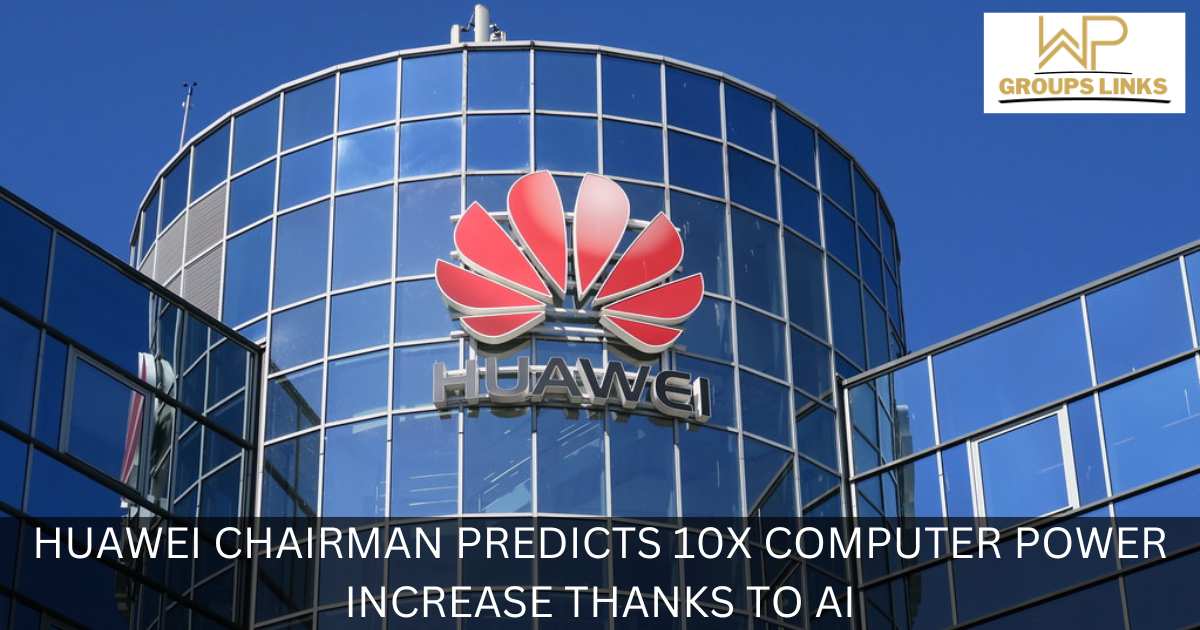HUAWEI CHAIRMAN PREDICTS 10X
In a rapidly advancing technological landscape, artificial intelligence (AI) has emerged as a transformative force, driving innovation across various industries. Ren Zhengfei, the chairman of Huawei, one of the world’s leading technology companies, has made a bold prediction that AI will bring about a tenfold increase in computer power. This potential revolution could have far-reaching implications, influencing fields such as healthcare, transportation, communication, and more.
The Current State of AI and Computer Power:
To understand the significance of Ren Zhengfei’s prediction, it is essential to examine the current state of AI and computer power. AI algorithms rely heavily on computational power to process vast amounts of data and perform complex calculations. The existing computing infrastructure has made significant strides, enabling the development of deep learning models and advanced AI applications. However, there are limitations to the current level of computer power, particularly in terms of scalability and energy efficiency.
Ren Zhengfei’s Bold Prediction: Ren Zhengfei’s prediction of a tenfold increase in computer power thanks to AI suggests a paradigm shift in computing capabilities. This prediction encompasses multiple dimensions of computer power, including processing speed, memory capacity, and energy efficiency. With AI at its core, this leap in computer power could revolutionize the way we approach technological challenges and open up new possibilities that were previously unimaginable.
Implications for Industries
Healthcare: The healthcare industry stands to benefit significantly from increased computer power. AI-powered medical imaging, drug discovery, and patient data analysis could be more accurate and efficient, leading to better diagnoses, personalized treatments, and improved patient outcomes.
Transportation: Autonomous vehicles heavily rely on AI algorithms and real-time data processing. A tenfold increase in computer power would enhance the speed and accuracy of decision-making processes in self-driving cars, improving road safety and optimizing traffic flow.
Communication: The communication sector could experience a transformation with the advent of more powerful computing systems. Real-time language translation, natural language processing, and enhanced voice recognition capabilities could lead to seamless global communication, transcending language barriers.
Manufacturing: AI-driven automation and robotics have already made significant advancements in manufacturing. With increased computer power, complex tasks that were previously challenging for machines, such as intricate assembly or quality control, could be performed with greater precision and efficiency.
Challenges and Considerations
Challenges and Considerations (300 words): While the prospect of a tenfold increase in computer power thanks to AI is exciting, it also raises several challenges and considerations. These include:
Ethical Implications: As AI becomes more powerful, ethical concerns surrounding privacy, data security, and bias must be addressed to ensure responsible and fair usage of technology. AI algorithms heavily rely on vast amounts of data, and the potential for misuse or unauthorized access raises significant ethical concerns. It is crucial to establish robust data protection measures, transparency in algorithmic decision-making, and accountability frameworks to address these ethical implications.
Environmental Impact: A substantial increase in computer power may lead to higher energy consumption, requiring sustainable solutions to mitigate the environmental impact. Data centers, which house the computing infrastructure, consume significant amounts of energy and contribute to carbon emissions. To support the increased demand for computing power, investments in renewable energy sources, energy-efficient hardware, and optimized data center designs are necessary to minimize the environmental footprint.
Workforce Transformation:
With enhanced computer power, certain job roles may become automated, necessitating reskilling and upskilling programs to ensure a smooth transition for the workforce. While AI has the potential to augment human capabilities and create new job opportunities, there is a need to address the potential displacement of workers in certain industries. Governments, educational institutions, and businesses must collaborate to provide training programs that equip individuals with the skills needed for the evolving job market.
Regulatory Frameworks: As AI evolves and computing power increases, regulatory frameworks must adapt to address potential risks and establish guidelines for responsible AI development and deployment. The current regulatory landscape may not adequately address the challenges posed by powerful AI systems. Clear guidelines are necessary to ensure safety, fairness, and transparency in AI applications, including robust testing and validation processes, algorithmic accountability, and standards for AI ethics.
Trust and Adoption:
The successful adoption of advanced AI technologies depends on building trust among users, organizations, and the general public. Transparency in AI algorithms, explainability of decision-making processes, and clear communication about the benefits and limitations of AI-powered systems are crucial. Addressing concerns related to bias, privacy, and security will be essential to foster trust and widespread adoption of these powerful computing systems.
Ren Zhengfei’s prediction of a tenfold increase in computer power thanks to AI holds immense potential for transforming industries and solving complex challenges. The advancements enabled by this increase in computing capabilities could revolutionize healthcare, transportation, communication, manufacturing, and many other sectors. However, it is crucial to approach this future with careful consideration of ethical, environmental, workforce, and regulatory challenges. By addressing these considerations, we can harness the power of AI and advanced computing to create a more sustainable, equitable, and beneficial future for society.



